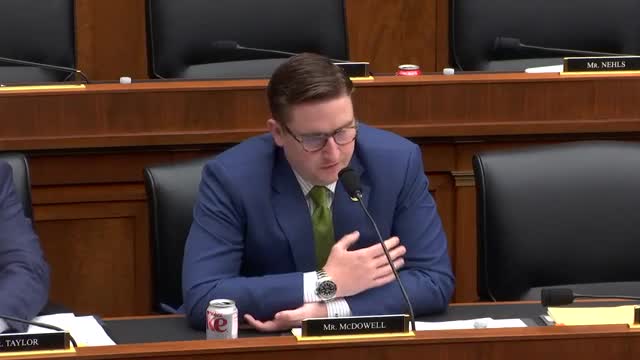Trucking representative tells committee CARB emission rules risk disrupting long‑haul routes
Get AI-powered insights, summaries, and transcripts
Subscribe
Summary
A representative of a long‑haul trucking company told the Transportation and Infrastructure: House Committee that California Air Resources Board emission standards would impose costly changes and that current electric‑vehicle infrastructure cannot support cross‑country freight operations.
A representative of a long‑haul trucking company told the Transportation and Infrastructure: House Committee that California Air Resources Board (CARB) emission standards could impose substantial costs and operational disruptions on interstate long‑haul trucking.
The committee member who raised the question asked the witness to “game out the costs and long term effects that the California Air Resources Board, emission standards will have on the trucking industry,” and asked, “Can you speak to that?” The company representative replied that his firm “does not have the resources to invest in . . . what is new technology,” adding, “we want proven technology. And right now, EVs are not proven.”
The representative said charging infrastructure is insufficient for long‑haul runs, noting, “we can fuel a truck in 15, 20 minutes and run 1,200, 1,500 miles.” He contrasted that with electric charging, saying even with an adequate network a truck might need to “charge overnight to run 200 or 300 miles,” and warned that such limitations could disrupt commerce and the economy if applied to long‑distance freight routes between states such as North Carolina and California.
The exchange recorded no formal votes or committee directions on the subject during the segment provided. The discussion focused on the operational differences between diesel fueling and battery electric vehicle (EV) charging for long‑haul freight and the company representative’s view that EV technology and charging networks are not yet suitable for their business model.
Committee members did not provide technical assessments or cite specific cost estimates during the exchange, and the witness did not cite studies or comparable pilot programs to quantify the projected economic impact. No next steps or staff assignments were recorded in the provided transcript segment.
